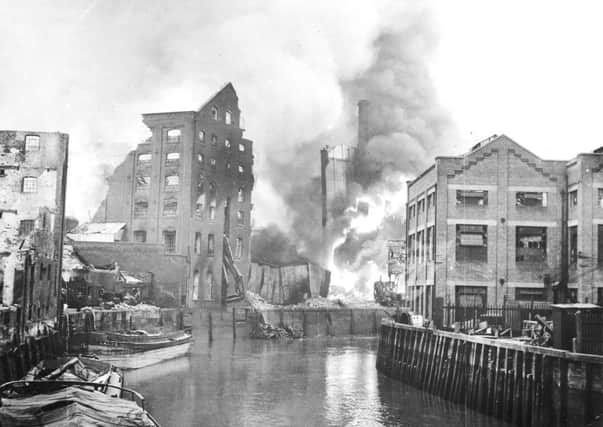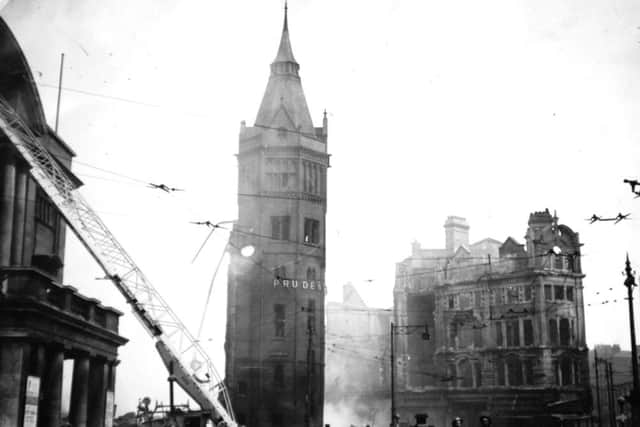Hundreds more died in Hull blitz, new research finds


However hundreds more people died in the city and surrounding area than the official figures suggest, according to an amateur historian who has spent months trawling official records.
Retired caretaker Malcolm Mann says the official death count of 1,148, plus 52 from the East Riding, is actually 1,458, because many people were not counted including those who died in accidents during the raids or committed suicide when their nerves could not take the bombing any more.
Advertisement
Hide AdAdvertisement
Hide AdOthers did no go on Hull’s list because they had been transferred to hospitals outside the region or were away from the city - which was the most heavily bombed in the country outside London - when they were caught up in the conflict.


“Because of the variations of how they collated the statistics you can’t say these figures are absolute - but they are near enough,” said Mr Mann, who is weeks away from completing a new book which gives far more detail about the individuals involved than the bare facts and figures of official statistics.
“In the past very few, just a handful really, have been acknowledged. At the time everybody was going through the same thing, events happened so rapidly, people who died in a raid were buried within three days.
“After the war everybody just accepted the facts that they were given and nobody went through the records.”
Advertisement
Hide AdAdvertisement
Hide AdMany historians including Mr Mann say Hull’s role in the war was overlooked: “It was worse than Coventry but Coventry was a more forward place, whereas Hull was just industrial with docks and for the Government is was important for it to be kept quiet because they didn’t want the enemy to know what the damage was.”
Some harrowing stories emerged through the research including one of a six-year-old boy who insisted on going into a cupboard to shelter while his family stayed in the kitchen.
“Unfortunately there was a faulty gas tap which he disturbed. He must have turned it on by accident.
“After the raid the mother found her child had died from gas poisoning.”
Advertisement
Hide AdAdvertisement
Hide AdThe child has now gone on the new record as has the family from Hull who escaped to Ireland, only to die in the first raid on Dublin.
Others died in car accidents linked to black-outs, a few fell into the docks.
Mr Mann’s own family was affected by the War - three young cousins died along with a relative who was looking after them when a bomb fell on their house in Kimberley Street.
People then would have never have seen themselves as heroes - they became inured to a situation which became their norm. “They got on with their life. Not everybody, but the vast majority did. It was just life at the time,” he said.
Advertisement
Hide AdAdvertisement
Hide AdLong periods would pass - as much as six months - without any bombing, before it would return with a vengeance.
Mr Mann’s work has also exploded some myths including claims that hundreds died sheltering in the Prudential tower which used to stand in Queen Victoria Square. There were rumours emergency services were not able to get everyone out and recover all the remains and that they had then poured in quick-lime and sealed the basement up.
“But in actual fact,” Mr Mann says, “everyone was brought out.”
The final death toll was six.
His research also sets the record straight about the last raid on Hull on March 17 1945.
Advertisement
Hide AdAdvertisement
Hide AdPeople still believe a lone enemy plane machine-gunned passers-by on Holderness Road.
In fact a fragmentation bomb had dropped, killing nine adults and three children.
“I have seen records that show a pensioner dived on top of a child to save them but both died of their injuries. The files are full of such brave actions.”